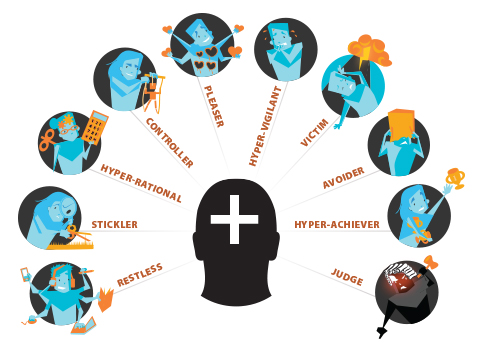Positive Intelligence is a term coined by Shirzad Chamine and is the title of his…

21st Century Sales Skills (Co-Published with The Logistics of Logistics)
How do you stand out in a crowded marketplace? Have you ever been to place, maybe on a cruise or somewhere in China or the Middle East, where the marketplace is so crowded that you can’t decide what to purchase let alone from which stand? Everyone seems to be selling the same scarf, T-shirt or souvenir. Then you pass by a kiosk that seems to be a little more organized and a bit clearer about what they are selling. Your tendency is to step in and have a look.
This image comes to my mind when I am partnering with my colleague, Joe Lynch of The Logistics of Logistics, helping clients stand out in the crowded third-party logistics space (3PL). Our clients want a marketing plan so that they can generate more leads and make more sales. Some of the possible strategies include a website, a blog, and social media such as LinkedIn. You’re on the right track if you sense you need to be visible online. This is what Joe and I call a 21st century approach to selling. Cold calling and knocking on doors generally doesn’t work anymore.
Developing 21st Century Sales Skills to Sell More 3PL Services
How do you do it effectively? What information feeds into your strategy? Without relevant content or a well-defined brand, you may still be a voice whose only strategy is to yell louder than your competitor. There are two streams of information that can clearly define you.
Personal Branding Helps You Get Found
First, there is your personal brand. At first glance, this seems like an all about me strategy but it isn’t. It’s customer centered. How do you get your message and your products to the right people? Your brand is of little value if you don’t think of it in context of your value proposition.
Moreover, personal brands are not assigned to you. They are uncovered. For instance, what is your personality type and how can you leverage your strengths while accounting for you blind spots? What do others say about you? Finally, what is your comfort level with taking calculated risks to get your business noticed? Is your brand best suited to the structures of an existing company or do you seek to be independent?
Define Your Target Market
The other stream of information comes from defining your customer. What are his greatest needs? What is your niche? If you are looking for a scarf at the bizarre, are you better off going to the scarf kiosk or someone who is offering hundreds of different products? What is your expertise?
Individuals and companies who can answer both sides of the equation (What is your personal brand and who do you serve?) have done the most important work that ultimately leads to an effective marketing strategy.
No matter how you step into the 21st century, whether it is a website, a social media strategy, a blog or a webinar, it is essential that you lay the important groundwork by discovering who you are and what your business is all about first.




This Post Has 0 Comments